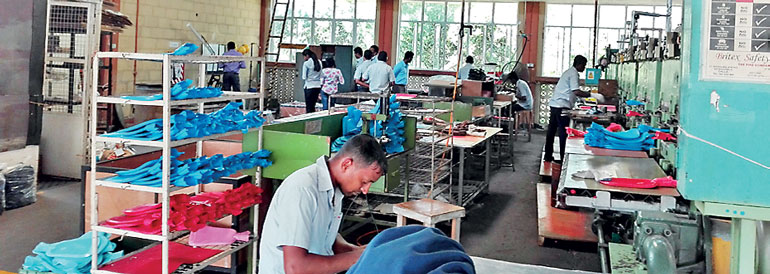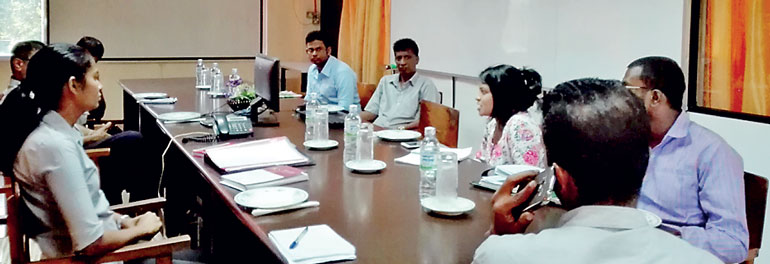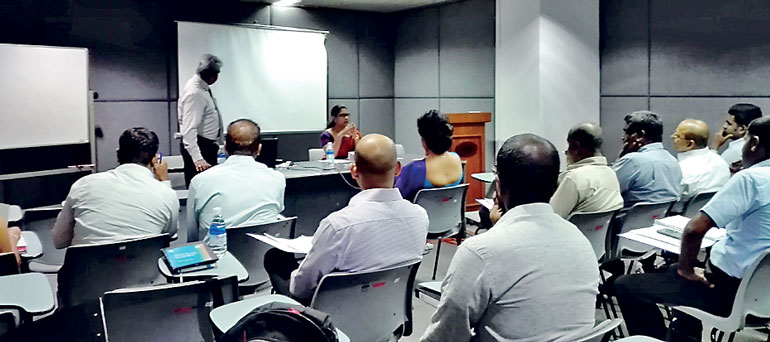Friday Apr 18, 2025
Friday Apr 18, 2025
Tuesday, 25 July 2017 00:01 - - {{hitsCtrl.values.hits}}
The rubber products industry is a key industry contributing 6.9 % to total exports (2016). Sri Lanka produces a wide variety of rubber products and the major markets are the US, Germany, Belgium, Italy, Canada, the UK and Brazil.
Sri Lankan rubber products have earned a reputation for quality and sustainability in the international market. The country supplies to major international brands such as Continental, Solideal, Wonder Grip, Mapa, Safety work, Tesco, Sansbury wilko, Asda, etc. Companies in the rubber industry use state-of-the-art technologies for manufacturing their products.
The plastic industry, although not a major export sector at present, has the potential to grow in the future. Currently, companies have access to overseas markets for polythene bags including doorknob bags, shirt bags, food wrap bags, etc.
In addition, many plastic processors supply packaging accessories such as hangers, buttons for garments and packaging for tea, spices, processed foods, perishables, etc.

Energy consumption in the manufacturing process of both sectors is relatively high compared with other industries and causes significant environmental issues. Considering current global trends and market ethics, major brands demand eco-friendly and sustainable products. Considering the importance placed by the international buyers as well as consumers on environmental friendly and sustainable products and also on being competitive in the global marketplace, it has become increasingly important to adhere to stringent procedures to minimise environmental issues and energy consumption. Therefore introducing ISO 14001 and ISO 50001 is vital for a product to gain a competitive advantage in the international market.
In order to help the industry to address the above issues, EDB commenced a System Development Program in 2017 for selected companies of the rubber and plastic sector by obtaining the services of a professional expert, the National Cleaner Production Center (NCPC).
NCPC is one of the foremost cleaner production solution providers in Sri Lanka with over 15 years of experience in promoting resource efficient and cleaner production in various industries and business sectors in the country. It is registered as an energy service company under the Sustainable Energy Authority and registered as a consultant organisation under Central Environment Authority in Sri Lanka.

The System Development Program, which is now in its final stage, commenced with a CEO’s forum to obtain the commitment of the top management of all the selected companies and followed by awareness seminars, preliminary audits, capacity building programs (train the trainer), internal auditor training, mock audit training programs, consultancy on system development, energy reviews with complete evaluation of energy flow, etc, and the development of procedure manuals which will enable the companies to obtain ISO 14001 and ISO 50001.
The NCPC will also assist companies in the application process for certification. Six companies were selected for ISO 50001 certification while four companies were selected for ISO 14001 certification. All six companies are in the process of applying for certification at present.

With the implementation of the System Development Program, EDB attempts to introduce and establish manufacturing excellence practices in the rubber product industry in order to improve sustainability and resource efficiency resulting in substantial cost reduction to enhance the competitiveness of the products in the international market. ISO 14001 and ISO 50001 certifications are the main certifications that international buyers demand when sourcing products.
The EDB works very closely with the industry and the Sri Lanka Association of Manufacturers and Exporters of Rubber Products (SLAMERP) in identifying the needs of the industry and helping them to build up competencies which in turn will sustain the industry in the international market in the long run and increase export earnings.
The System Development Program is implemented on a cost sharing basis where part of the cost of the consultancy fee and certification will be borne by the EDB. EDB proposes continuing this program for other product sectors as well in the future.
Discover Kapruka, the leading online shopping platform in Sri Lanka, where you can conveniently send Gifts and Flowers to your loved ones for any event including Valentine ’s Day. Explore a wide range of popular Shopping Categories on Kapruka, including Toys, Groceries, Electronics, Birthday Cakes, Fruits, Chocolates, Flower Bouquets, Clothing, Watches, Lingerie, Gift Sets and Jewellery. Also if you’re interested in selling with Kapruka, Partner Central by Kapruka is the best solution to start with. Moreover, through Kapruka Global Shop, you can also enjoy the convenience of purchasing products from renowned platforms like Amazon and eBay and have them delivered to Sri Lanka.
Discover Kapruka, the leading online shopping platform in Sri Lanka, where you can conveniently send Gifts and Flowers to your loved ones for any event including Valentine ’s Day. Explore a wide range of popular Shopping Categories on Kapruka, including Toys, Groceries, Electronics, Birthday Cakes, Fruits, Chocolates, Flower Bouquets, Clothing, Watches, Lingerie, Gift Sets and Jewellery. Also if you’re interested in selling with Kapruka, Partner Central by Kapruka is the best solution to start with. Moreover, through Kapruka Global Shop, you can also enjoy the convenience of purchasing products from renowned platforms like Amazon and eBay and have them delivered to Sri Lanka.